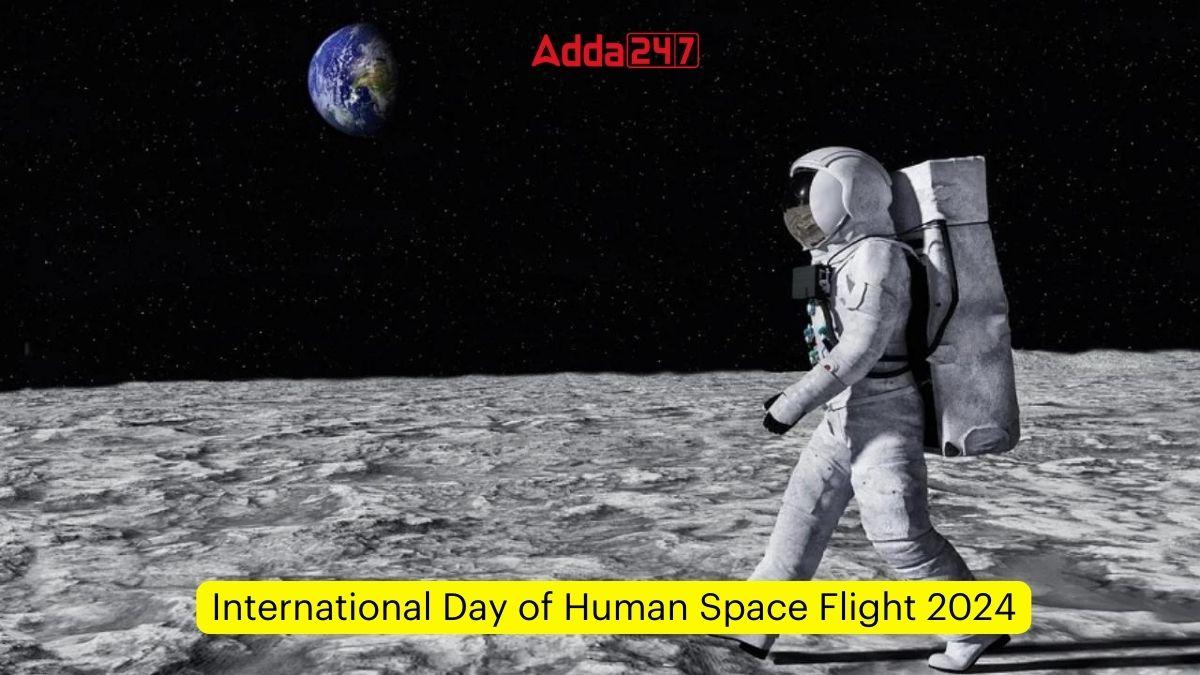International Day of Human Space Flight
The International Day of Human Space Flight is commemorated every year on April 12 to mark the beginning of the space era for mankind. The United Nations General Assembly, on April 7, 2011, passed a resolution to establish the International Day of Human Space Flight on a particular day every year.
The primary reason behind choosing April 12 as the date is rooted in the Russian cosmonaut Yuri Gagarin’s achievement to orbit Earth aboard the Vostok 1 spacecraft on this day. This achievement by Gagarin paved the path for space exploration for the benefit of humanity.
The International Day of Human Space Flight is celebrated to reaffirm the role of space science and technology in accomplishing sustainable development goals, while also contributing to the improvement of the well-being of states and peoples. To celebrate the day, several space museums, science centres, and schools organise events dedicated to space-related programs.
History
The first human-made satellite Sputnik I was launched into outer space by the Soviet Union in 1957, paving the way for space exploration. It took four years for another momentous occasion to occur. Yuri Gagarin, the Russian cosmonaut, made the first human space journey on April 12, 1961, in Vostok 1, his space spacecraft. Gagarin took 108 minutes to complete his journey in space, which was a watershed moment in the Space Race.
International Day of Human Space Flight 2024, Significance
Space exploration not only provides insights into our solar system’s history, but has added a valuable contribution to various fields such as communication, navigation, and weather forecasting among others. Besides, it is helpful in the development of new enterprises.
The United Nations recognises the efforts of scientists in exploring the possibilities to detect potentially hazardous objects roaming in our solar system through these studies and approaching our planet. This helps us in advanced preparations to face an incoming possible danger.
Had it not been for space exploration, the world would not have been able to have satellites in space which are the core foundation for communication, navigation, and security.
UN and Space
From the very beginning of the Space Age, the United Nations recognized that outer space added a new dimension to humanity’s existence. The United Nations family strives continuously to utilize the unique benefits of outer space for the betterment of all humankind.
Recognizing the common interest of humankind in outer space and seeking to answer questions on how outer space can help benefit the people’s of Earth, the General Asssembly adopted its first resolution related to outer space, resolution 1348 (XIII) entitled “Question of the Peaceful Use of Outer Space”.
On 10 October 1967, the “Magna Carta of Space”, also known as the Treaty on Principles Governing the Activities of States in the Exploration and Use of Outer Space, including the Moon and Other Celestial Bodies entered into force.
Today, the United Nations Office for Outer Space Affairs (UNOOSA) is the United Nations office responsible for promoting international cooperation in the peaceful uses of outer space. UNOOSA serves as the secretariat for the General Assembly’s only committee dealing exclusively with international cooperation in the peaceful uses of outer space: the United Nations Committee on the Peaceful Uses of Outer Space(COPUOS).
UNOOSA is also responsible for implementing the Secretary-General’s responsibilities under international space law and maintaining the United Nations Register of Objects Launched into Outer Space.



 Mankind Pharma Acquires Bharat Serums an...
Mankind Pharma Acquires Bharat Serums an...
 Discovery of Lithium Resources in Mandya...
Discovery of Lithium Resources in Mandya...
 What is Blue Screen of Death?
What is Blue Screen of Death?
